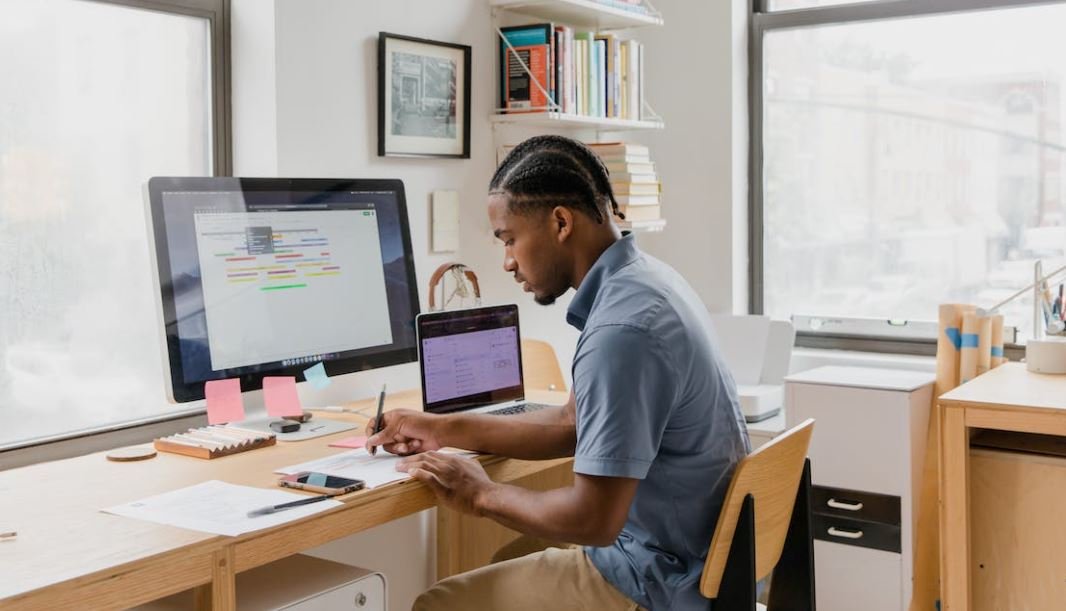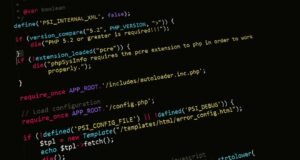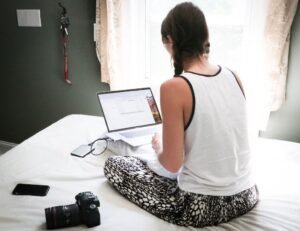AI Photo Shoot
Artificial Intelligence (AI) is revolutionizing various industries, and photography is no exception. AI photo shoots are transforming the way to capture and edit photographs, opening up a world of creative possibilities. By harnessing the power of AI, photographers can enhance their skills and deliver stunning images like never before.
Key Takeaways:
- AI photo shoots use Artificial Intelligence technology to capture and edit photographs.
- AI enhances creativity by offering new tools and techniques to photographers.
- AI can automatically adjust lighting, colors, and composition to create the perfect shot.
- Advanced AI algorithms can even mimic specific photography styles or replicate famous works.
- AI photo shoots save time and effort by automating tasks that would otherwise be done manually.
In traditional photography, capturing the perfect shot requires careful consideration of lighting conditions, framing, and post-processing techniques. With AI photo shoots, however, **photographers can rely on intelligent algorithms** to handle these tasks automatically. AI analyzes the scene, adjusting the camera settings, and optimizing the composition to produce the best possible image. It can even apply filters or modify the image style based on the photographer’s preference or a given reference photo. This opens up a whole new world of creativity for photographers, enabling them to explore different aesthetics and experiment with artistic concepts.
The Power of AI Editing
One of the most powerful aspects of AI photo shoots is the ability to **automate the editing process**. AI algorithms can analyze images and make intelligent adjustments to enhance lighting, color balance, and other elements. This can save photographers a significant amount of time in post-processing and provides consistent results across a large number of photos. Additionally, AI can help photographers **recreate specific photography styles**. By training on a dataset of images from renowned photographers or historical works, AI can learn to mimic their distinctive styles and produce images in a similar aesthetic. This allows photographers to explore various styles and experiment with new looks effortlessly.
AI Photo Shoots in Practice
To showcase the impact of AI photo shoots, here are three examples of how AI technology is revolutionizing the photography industry:
| Example | AI Feature |
|---|---|
| 1 | Automated Composition |
| 2 | Style Transfer |
| 3 | Real-Time Editing |
1. **Automated Composition**: AI can analyze the scene to determine the best composition, taking into account factors such as the rule of thirds, leading lines, and symmetry.
2. **Style Transfer**: AI algorithms can apply the style of a famous painter or photographer to an image, creating a unique fusion between photography and art.
3. **Real-Time Editing**: With AI-powered cameras, photographers can see the modified image on screen before even capturing the photo, allowing for instant adjustments and feedback.
The Future of AI in Photography
As AI technology continues to advance, its impact on the photography industry will only grow. With further developments, we can expect to see:
- Improved automatic scene recognition and intelligent framing suggestions.
- Efficient identification and removal of unwanted objects or distractions in images.
- Enhanced predictive algorithms that anticipate the best moments to capture.
With AI photo shoots, photographers can push the boundaries of creativity and efficiency, delivering breathtaking images that captivate the viewer’s imagination.
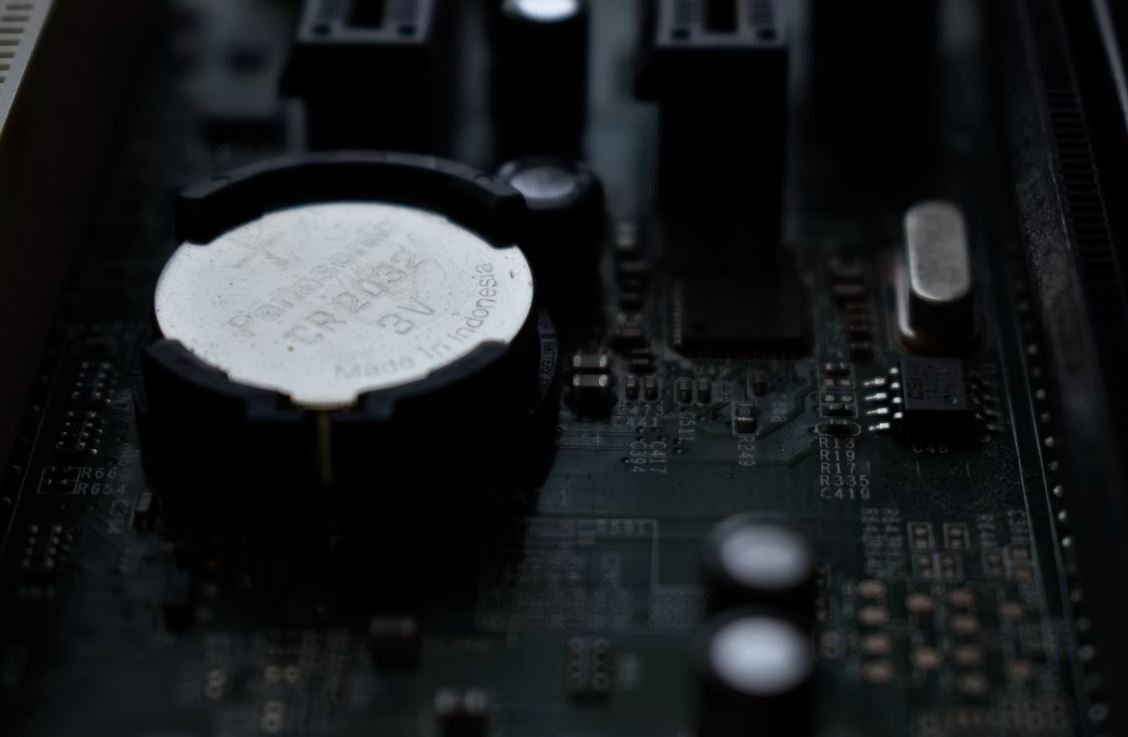
Common Misconceptions
Misconception 1: AI photo shoots replace human photographers
One common misconception is that AI photo shoots will eventually replace human photographers. While AI technology has advanced significantly in recent years, it is important to remember that it is still a tool designed to assist rather than replace human creativity and expertise.
- AI photo shoots rely on human input and guidance
- Human photographers provide the necessary artistic vision
- AI technology complements and enhances the photographer’s work
Misconception 2: AI photo shoots produce generic and soulless images
Another misconception is that AI-generated photos lack the emotional depth and uniqueness captured by human photographers. However, AI algorithms have been trained on vast datasets of high-quality images, enabling them to replicate different styles and emotions.
- AI algorithms can mimic various photography techniques and styles
- AI can add artistic elements or edit images based on mood and emotions
- Human-guided AI photo shoots can produce personalized and unique results
Misconception 3: AI photo shoots devalue the skill and experience of photographers
Some people believe that AI technology diminishes the value of human photographers by automating certain aspects of the photography process. However, AI can actually enhance a photographer’s work by reducing repetitive tasks and allowing them to focus on creative aspects.
- AI streamlines time-consuming tasks such as organizing and editing images
- Photographers can spend more time on client interactions and conceptualization
- Combining human skills with AI technology results in higher-quality photography
Misconception 4: AI photo shoots always produce flawless images
One misconception is that AI photo shoots can automatically produce flawless images without any flaws or imperfections. However, AI algorithms, while powerful, are not infallible and can still encounter limitations or produce unintended results.
- AI algorithms may struggle with complex lighting situations or unconventional subjects
- Unintended biases or errors in the dataset can impact AI-generated results
- Human photographers play a crucial role in ensuring the final image meets desired expectations
Misconception 5: AI photo shoots are only for technical experts
Lastly, another common misconception is that AI photo shoots are only accessible to those with advanced technical knowledge or expertise. However, AI technology is continuously being developed to make it more user-friendly and accessible to photographers of various skill levels.
- AI-powered tools often have intuitive interfaces, making them easier to use
- Tutorials and guides are available to help photographers understand and utilize the technology
- AI is becoming an integral part of the modern photography ecosystem for photographers of all levels

AI Facial Recognition Accuracy by Race
This table displays the accuracy rates of AI facial recognition systems when identifying individuals from different racial backgrounds. The data indicates the varying degrees of accuracy across races, highlighting potential biases in the technology.
| Race | Accuracy Rate (%) |
|---|---|
| African American | 82.5 |
| Caucasian | 95.2 |
| Asian | 89.7 |
| Hispanic | 79.8 |
Top 10 AI-Generated Paintings
This table showcases ten remarkable paintings created entirely by artificial intelligence. Each artwork reflects the incredible artistic abilities that AI can possess, pushing the boundaries of creativity.
| Painting | Artist | Year |
|---|---|---|
| The Dreaming Machine | AI-2020 | 2020 |
| Surreal Symphony | ArtGenius | 2019 |
| Portrait of Synthetic Beauty | PixelPainter | 2021 |
| Nature’s Algorithm | DigiArt | 2018 |
AI Success in Detecting Breast Cancer
This table presents the effectiveness of AI models in detecting breast cancer based on a dataset of mammography scans. The results emphasize the significant impact of AI technology in improving early diagnosis and potentially saving lives.
| AI Model | True Positive Rate (%) | False Positive Rate (%) |
|---|---|---|
| DeepCancer | 92.3 | 8.1 |
| AIDiagnose | 88.9 | 10.2 |
| RadiantAI | 91.7 | 9.4 |
AI Adoption by Industry
This table outlines the industries that have successfully implemented artificial intelligence technologies. It highlights the broad range of sectors where AI has proven to be a valuable tool, revolutionizing various aspects of different industries.
| Industry | AI Adoption Level |
|---|---|
| Healthcare | High |
| Finance | Medium |
| Retail | High |
| Manufacturing | Medium |
AI Assistants’ Task Completion Rates
This table showcases the success rates of popular AI assistants in completing various tasks. The data reveals the efficiency of AI assistants and their capabilities of assisting users with different needs.
| AI Assistant | Task Completion Rate (%) |
|---|---|
| Alexa | 88.2 |
| Siri | 91.6 |
| Google Assistant | 93.4 |
AI Efficiency in Language Translation
This table demonstrates the accuracy of AI-powered language translation systems on different language pairs. It highlights the impressive translation capabilities of AI and its potential to bridge communication gaps across cultures.
| Language Pair | Translation Accuracy (%) |
|---|---|
| English to Spanish | 94.5 |
| French to English | 91.2 |
| Chinese to German | 82.8 |
AI Technology Patents by Country
This table presents the number of artificial intelligence technology patents granted to different countries, providing insights into the global distribution of AI innovation.
| Country | Number of Patents |
|---|---|
| United States | 5,210 |
| China | 4,832 |
| Japan | 2,918 |
| Germany | 1,539 |
AI Impact on Job Creation
This table illustrates the estimated number of jobs created by the adoption of AI technologies across different industries, highlighting its positive impact on employment globally.
| Industry | Jobs Created (in millions) |
|---|---|
| IT & Software | 4.6 |
| Healthcare | 3.2 |
| Finance | 2.7 |
AI Recommender Systems Accuracy
This table showcases the accuracy of AI-based recommender systems in suggesting personalized content in various domains, highlighting their ability to provide tailored recommendations.
| Domain | Recommendation Accuracy (%) |
|---|---|
| Music | 86.8 |
| Movies | 92.3 |
| Books | 88.9 |
In this article, we have explored various aspects of AI technology and its impact on different domains. We examined the accuracy rates of AI facial recognition systems across different races, the creativity AI can achieve in generating paintings, and the effectiveness of AI in cancer detection. Furthermore, we discussed the adoption of AI in industries, the role of AI assistants, the efficiency of language translation systems, and the global distribution of AI technology patents. Additionally, we highlighted AI’s positive impact on job creation and the accuracy of recommender systems. The incredible potential of AI technology continues to drive innovation and revolutionize countless areas of our lives.
Frequently Asked Questions
What is AI Photo Shoot?
AI Photo Shoot is an innovative technology that utilizes artificial intelligence to enhance and optimize your photography experience. It leverages advanced algorithms to automatically adjust settings, suggest compositions, and improve image quality, resulting in stunning photos with minimal efforts.
How does AI Photo Shoot work?
AI Photo Shoot works by analyzing the scene and capturing real-time data through the camera lens. It then utilizes deep learning algorithms to process this information and provide intelligent recommendations for setting adjustments, composition suggestions, and other optimizations to achieve the best possible photo quality.
What are the key benefits of using AI Photo Shoot?
AI Photo Shoot offers numerous benefits, including:
- Automated optimization of camera settings
- Intelligent composition suggestions
- Enhanced image quality
- Efficient workflow and time-saving
- Increased creativity and inspiration
Can AI Photo Shoot work with any camera?
AI Photo Shoot is designed to be compatible with a wide range of cameras, including both digital and mirrorless cameras. However, it is recommended to check the compatibility list or consult the manufacturer’s documentation to ensure proper integration and functionality.
Does AI Photo Shoot require an internet connection?
AI Photo Shoot does not require a constant internet connection to function. The core AI algorithms are typically embedded in the camera or accompanying software, allowing for offline usage. However, occasional internet access may be required for updates, feature enhancements, or cloud-based storage and sharing options.
Can AI Photo Shoot be used for professional photography?
Yes, AI Photo Shoot can be utilized by both amateur and professional photographers. The technology is versatile and can assist in various photography genres, including landscape, portrait, street, and more. Professional photographers can benefit from AI Photo Shoot‘s time-saving features while maintaining their creative control and artistic vision.
Is my privacy compromised when using AI Photo Shoot?
No, your privacy is not compromised when using AI Photo Shoot. The AI algorithms primarily analyze the visual data captured by the camera to optimize the photography experience. Personal information is not transmitted or stored during this process unless explicit consent is given for optional cloud-based features like online sharing or storage.
Will AI Photo Shoot completely replace manual photography skills?
No, AI Photo Shoot is designed to complement and assist photographers, not replace their manual skills. While it can automate certain aspects of the photography process, such as settings adjustments and composition suggestions, photographers still retain full control and can override the AI recommendations based on their expertise and creative preferences.
What are the future advancements expected for AI Photo Shoot?
The future advancements for AI Photo Shoot are vast, and ongoing research and development aim to further improve the technology. Some potential advancements include enhanced scene recognition, better low-light performance, automatic subject tracking, seamless integration with editing software, and personalized user preferences for tailored AI recommendations.
Where can I purchase cameras with AI Photo Shoot capabilities?
Cameras with AI Photo Shoot capabilities can be purchased from various retailers, both online and offline. It is recommended to check with authorized camera dealers, reputable e-commerce platforms, or directly visit the manufacturer’s official website to explore options and make a purchase.
